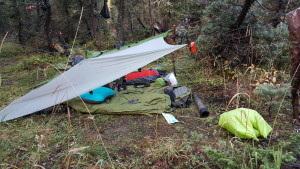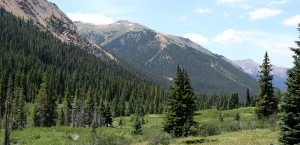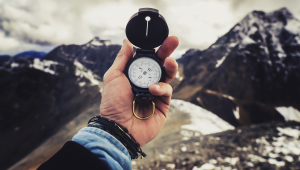Cotton Kills
3 min readA number of years ago my oldest son and I went for a hike in the Rocky Mountain National Park. It was late in the day and the weather was a brisk 25 degrees and windy. We set a quick pace, making it to Cub Lake at sunset. The view was spectacular, but in the beauty of that setting I would soon learn a dangerous yet valuable lesson.
As we’ve all learned, I had worn several layers to keep warm that wintry day. The layers I had chosen were made up of a cotton long sleeve shirt, a cotton sweatshirt and an outer shell of nylon. By the time we arrived at Cub Lake I had worked up quite a sweat due to the fast pace we had set. My nylon shell had been an effective windbreaker, but it had also held in all the moisture produced from my exertion; my 2 cotton shirts were wet with sweat. In an attempt to dry off, I removed my shell whereupon the sweat on my two shirts froze almost instantly in the brisk, cold wind. On the hike back down the mountain I began to shiver violently, and by the time we arrived at the trail head I was almost incoherent and incapable of rational thought. My son got me in the truck with the heater on high and wrapped me in everything we had on hand to warm me back up. Stop and think: what are most towels made of? Cotton. With that being the case, why would you want to encase yourself in something that, by its very nature, absorbs and then holds moisture?
Here’s another illustration. Not too long ago my wife and I rented some ATV’s while on vacation. During the course of our 4-wheeled explorations we had gotten quite wet and muddy. When we returned to our hotel we washed our clothes in the shower and then hung them up to dry in our room. I had worn blue jeans that day while my wife wore a pair of fast drying nylon pants. My wife’s pants took only about 20 minutes to dry. My heavy cotton jeans were a different story. Even the next day, after a 5 hour drive home from Steamboat Springs to Colorado Springs, my jeans were still wet.
Now, let me ask you a question, which would you rather wear while in the woods? Something that pulls the moisture produced by your body away and keeps you dry? Or something that remains cold, wet and clammy for hours; pulling precious heat from your body?
Right after the episode at Cub Lake I got rid of all my cotton hunting and hiking clothes. I replaced them with 100% nylon apparel. During elk season a few years ago I wore a set wicking fabric top and bottoms (such as Under Armor), fleece pants and shirt, my nylon shirt and pants with a light camo jacket. I was the warmest in camp by far even though the lows were in the teens. Others would bundle up in several pairs of cotton long-johns and sweat pants and get chilled quickly after stopping. Not an enjoyable scenario in my book. If you stay dry you’ll be amazed at how much warmer you’ll be – trust me!
OK. Now that we’ve talked at some length about “wicking, wicking, wicking” in our hunting clothing selections, let’s talk about the bottom line for many of us; cost! While there may be a slight increase in cost by dressing in high-tech wicking layers, all I have to do is think back to my brush with hypothermia at Cub Lake and in my mind it’s well worth the added expense.
So, do I practice what I preach? You won’t find any cotton in my hunting gear what-so-ever. What about yours?
Roger Medley




